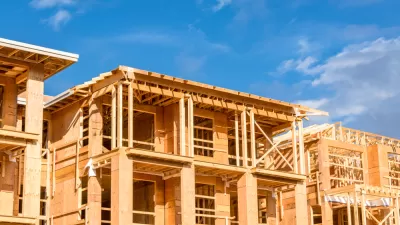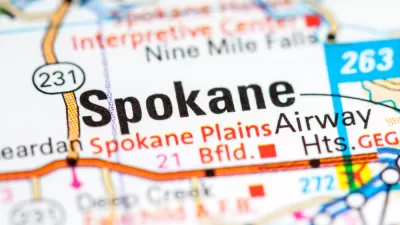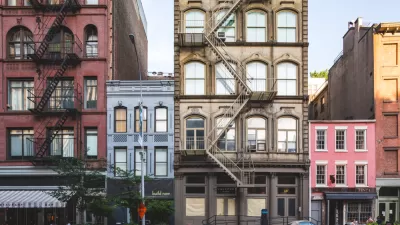An in-depth look into the political controversies stirred up in the Boston neighborhood of Jamaica Plain as a result of a proposed, density-adding zoning plan.
"Boston officials this week are set to approve new zoning rules for a section of Jamaica Plain from Egleston Square to Forest Hills, bringing new growth and affordable housing to a neighborhood that many residents say needs both," according to an article by Tim Logan and Shelby Grebbin.
But there's a catch: the plan has critics on both sides of the proposal. "Developers and their allies worry that aggressive requirements for low-cost units make it too expensive to build, while a group of vocal protesters argue the opposite, that the city hasn’t gone far enough on affordable housing," according to Logan and Grebbin.
The article highlights the proposed plan as a case study of conflicting dynamics at work in Boston and other cities all over the country: the need for more housing, especially affordable housing, and the desire to preserve neighborhoods for the communities already living there.
The specifics of the Jamaica Plain experience, which are detailed in the article with infographics and testimonials, will also be helpful as the city gears up for similar rezonings in the neighborhoods of Roxbury and Dorchester.
FULL STORY: Housing plan brings growing pains to Jamaica Plain

Alabama: Trump Terminates Settlements for Black Communities Harmed By Raw Sewage
Trump deemed the landmark civil rights agreement “illegal DEI and environmental justice policy.”

Planetizen Federal Action Tracker
A weekly monitor of how Trump’s orders and actions are impacting planners and planning in America.

The 120 Year Old Tiny Home Villages That Sheltered San Francisco’s Earthquake Refugees
More than a century ago, San Francisco mobilized to house thousands of residents displaced by the 1906 earthquake. Could their strategy offer a model for the present?

LA’s Tree Emergency Goes Beyond Vandalism
After a vandal destroyed dozens of downtown LA trees, Mayor Karen Bass vowed to replace them. Days later, she slashed the city’s tree budget.

Sacramento Leads Nation With Bus-Mounted Bike Lane Enforcement Cameras
The city is the first to use its bus-mounted traffic enforcement system to cite drivers who park or drive in bike lanes.

Seattle Voters Approve Social Housing Referendum
Voters approved a corporate tax to fund the city’s housing authority despite an opposition campaign funded by Amazon and Microsoft.
Urban Design for Planners 1: Software Tools
This six-course series explores essential urban design concepts using open source software and equips planners with the tools they need to participate fully in the urban design process.
Planning for Universal Design
Learn the tools for implementing Universal Design in planning regulations.
Ada County Highway District
Clanton & Associates, Inc.
Jessamine County Fiscal Court
Institute for Housing and Urban Development Studies (IHS)
City of Grandview
Harvard GSD Executive Education
Toledo-Lucas County Plan Commissions
Salt Lake City
NYU Wagner Graduate School of Public Service





























